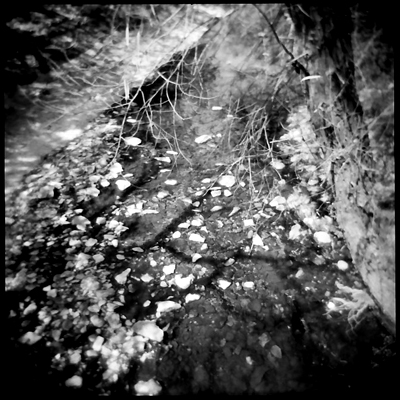 This happened a couple decades ago, and here is how I remember it: I meet a girl, a young woman, maybe eighteen, at a poetry reading. She says she can read my palm. My lifeline is broken—she noticed as she sat behind me and I rubbed my hand through my hair—so maybe she’d better see, meaning see what’s in store for me.
This happened a couple decades ago, and here is how I remember it: I meet a girl, a young woman, maybe eighteen, at a poetry reading. She says she can read my palm. My lifeline is broken—she noticed as she sat behind me and I rubbed my hand through my hair—so maybe she’d better see, meaning see what’s in store for me.
“No thanks,” I say. “I don’t want to know.”
Poetry reading over, the eight or so people who showed up mill around the bookstore, studiously not buying the author’s book. The very fine author—artistic ego dismantled, I assume—smiles, says a few thank yous, shakes some hands, and leaves. Spending years putting aspects of your life onto a page, working and reworking phrases and lines into crystalline meanings, rhythmic near-perfection, syntactical exactitude, then sharing that work with a disinterested public—few things seem more potentially humiliating. Of course what I see as the problem is not the poet or poetry but the upside-down material culture it enters to then disappear like smoke. But if what I thought mattered, things would be different. I am a poor person in a city. My inconsequence is unquestionable.
People funnel out the front door and onto the sidewalk. I’d buy a book—Czeslaw Milosz has a new one, I see, and the handsome middle-aged owners of the shop clearly hope someone will buy something—but I don’t have any money. Not a dime.
Outside, under a glaring streetlight, the palm-reading young woman races over to me. “Okay. Okay,” she says. “But what is it going to hurt if I read you? What are you afraid of?”
“It’s not that I’m afraid.”
She grabs my hand, turns it over, palm up. I let her have it. I get a good look at her as she looks at my open hand. Black hair, wild black eyes, skin white as an egg under this light. Sick-thin. Sweaty. Almost feral. Could have flown in fanged from the alley over there.
“Look at this lifeline. I read palms like poems,” she says. “I’ll stare down into the souls in your sperm. I’ll take your metaphor into me and decipher it.”
Here comes the book shop’s male co-owner. “Melissa! Melissa! Melissa!” he shouts as he walks out of the store, arms waving, onto the sidewalk. “Hey. I told you to stop bothering everyone at the poetry readings!”
“Screw you, pig!” she shouts, then, almost simultaneously, turns and sprints like some sort of hallucinating Olympian down the sidewalk, arms pumping, and knocks over a trash can as she turns the corner.
The owner says to me, “Don’t listen to her. She’s a drug addict.”
“You know her.”
“She used to be my foster kid.” He shakes his head. “She’s really a great kid when she’s herself. But she’s either high or trying to get high.” He sighs, and a decade of pain that smells a little like cigarettes floats past me and up into the sky.
A moment later the poet is back, holding a big, open beer in a bag. He has the right idea. The world is tragic, sure, but there is poetry and alcohol. The owner is embarrassed about the commotion, apologizing over and over to the poet, who is maybe important in some small context. We all stand around glowing under the streetlight. The girl left traces of something—a vibe, I guess. The poet, after a big swig, says, “Hey, man. Don’t worry about it. She gave me a free palm reading. She said I’m going to be famous.”
—
Greg Bottoms is the author of four books, including the memoir Angelhead: My Brother’s Descent into Madness and the travel/documentary narrative The Colorful Apocalypse: Journeys in Outsider Art. His essays and memoirs have appeared in Agni, The Believer, Creative Nonfiction, Oxford American, and elsewhere.
Photo by Kristin L. Ware
